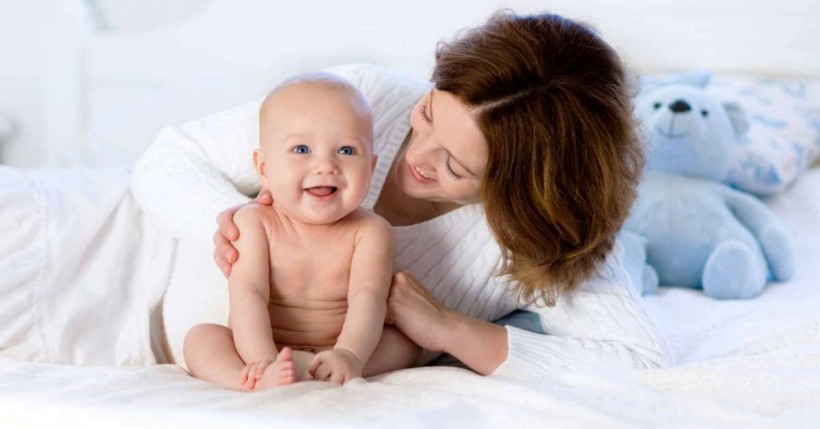
Babies are cute, and no one can resist kissing them. Their sweet smile, chubby cheeks, tiny eyes, and cute hands instantly make you want to peck them on the cheek.
We kiss and hug babies out of love and affection, which seems harmless. But if you’re a parent of a newborn or you simply enjoy cuddling and kissing your friends’ babies, we strongly advise you to refrain from doing so.
No, it isn’t. In fact, it can harm their health. This is so because it takes time for the immune system of infants to fully develop, which is why they, especially newborns, are prone to bacterial and viral infections.
Kissing a baby on or near the mouth, even on their hands, can spread certain conditions, such as RSV or herpes simplex virus, which can put their lives at risk. This is why doctors advise parents to wash their hands thoroughly before attending to their babies. Our hands and face harbor different pathogens, and when we kiss babies, these microorganisms get transferred to their skin.
In what follows, we share the risks that kissing babies can pose and what precautions you can take to protect your baby from illnesses. (1)
Kissing and cuddling infants can result in the spread of the following 7 conditions:
Just like adults, babies can be allergic to some foods or chemicals found in skin care products and makeup. If a person has recently eaten soy or nuts or consumed dairy products (foods that many young infants are allergic to) and kisses a baby, they may expose the baby to a substance that they’re unaware the baby may be allergic to and put their life at risk.
Similarly, kissing an infant with celiac disease or any other gluten-related disorders while wearing lipstick that contains gluten can be harmful too.
In addition, young infants can be allergic to some chemicals found in skincare products, such as formaldehyde and parabens.
RSV is a respiratory virus that usually starts out with symptoms similar to a cold, such as coughing, a decrease in appetite, sneezing, a runny nose, and fever. However, RSV can be serious for infants, particularly those under six months. Moreover, this virus is one of the main causes of bronchiolitis and pneumonia in infants that are younger than one year of age.
Since RSV is a highly contagious virus, it is hard to prevent babies from contracting it. If a person infected with this virus kisses a baby, the baby will get infected too. RSV is transmitted through physical contact and through exhaling respiratory droplets, which contain particles of the virus via sneezing or coughing.
The most common symptoms that can appear in young infants infected with RSV include irritability, decreased activity, and breathing difficulties, such as flaring the nostrils and fast breathing. (2)
Developing this condition, also known as fever blisters, is one more risk that kissing babies can pose. In addition, babies are especially vulnerable to herpes simplex virus type 1 (HSV-1). This infection can be transmitted through sharing objects, such as kitchen utensils or toothbrushes, or kissing.
HSV-1 causes fever blisters around the mouth, but they can spread to other body parts and even cause brain damage. Therefore, people with cold sores should refrain from kissing babies, even on their hands. (3)
The immune system of a baby is not fully developed. Instead, it matures throughout life as he or it is exposed to various bacteria and viruses. That’s the reason why newborns and young infants are especially prone to illnesses.
So, although the chubby cheeks and soft, tiny hands of babies may be too cute to resist kissing, before kissing a baby, even if it’s your own child, think about all the germs that you can spread and that the baby has to fight with their weak immune system.
Hand, foot, and mouth disease is an infection caused by viruses. Common symptoms of this disease include sores or blisters in or around the mouth, fever, and a skin rash on the hands and feet. It is transmitted through person-to-person contact, including kissing, contact with contaminated objects and surfaces, and droplets that contain virus particles generated by sneezing or coughing.
HFMD affects more commonly young children than adults. When a child contracts this infection, they get fussy, have a sore throat, feel tired, and have a poor appetite.
Fortunately, this disease rarely causes serious complications.
“The kissing disease,” or mononucleosis, is a contagious disease caused by a virus. It is transmitted through saliva, which means that you can contract it by sharing kitchen utensils with a person with this illness and by kissing.
“The kissing disease” affects teenagers and adults more commonly, but it can also occur among infants. This illness leads to cranky behavior, sore throat, and runny nose in infants.
There is no specific treatment for this illness. The infant has to endure the symptoms until their immune system fights the viral infection off. (4)
Did you know that kissing a baby can lead to cavities in their teeth, also known as tooth decay?
One of the causes of this condition is the bacteria Streptococcus mutans. Streptococcus is commonly found in the mouth, so it can be easily passed on to babies by kissing or sharing food with them. (5)
Our skin harbors different pathogens, which can’t adversely affect healthy adults, but can compromise the health of babies. That’s why it’s recommended that you take certain precautions while kissing or hugging your baby and ask other people to do the same too.
Here’s what you can do to protect your baby from becoming sick: